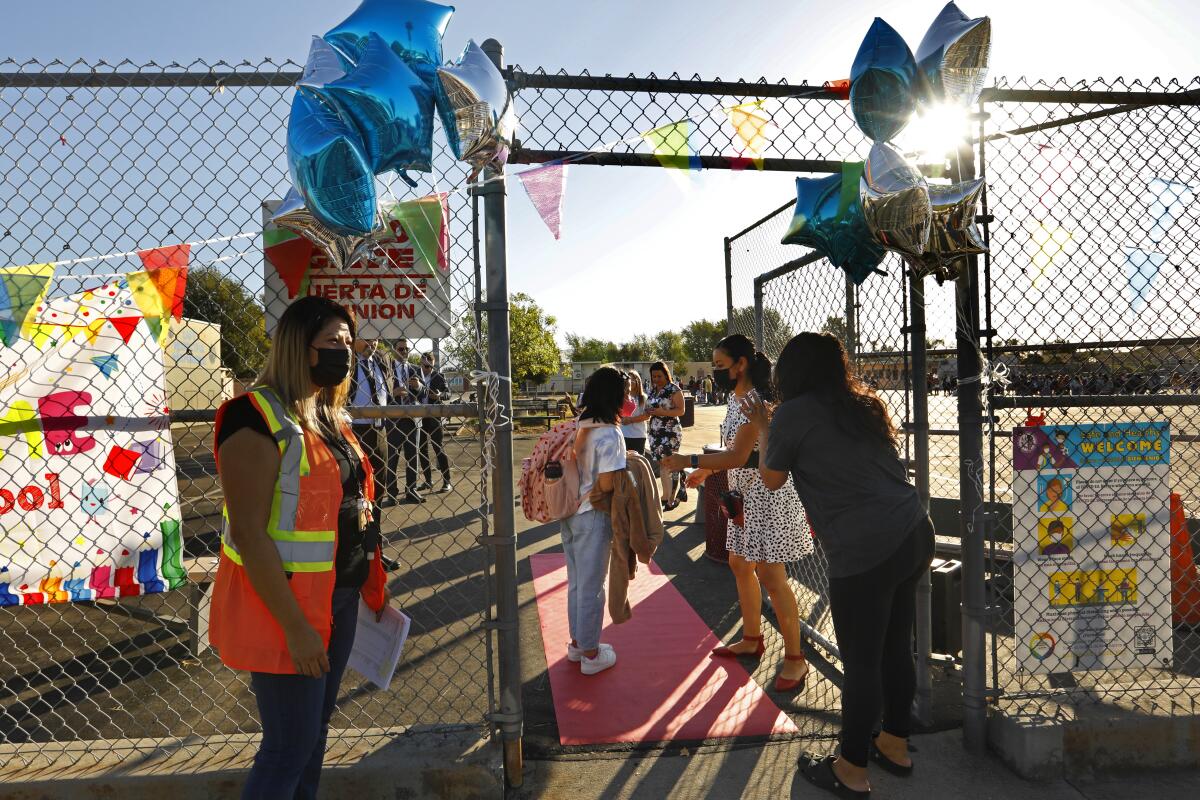Letters to the Editor: The pandemic harmed students. Obsessing over test scores will harm them more

- Share via
To the editor: Any educator knew at the outset of the pandemic that student test scores would suffer when “normalcy” returned. Problem is, those now advocating to raise those scores are sadly misdirected. Teaching professionals realize that before students can have better test results (the “what” of education), they must first remaster learning skills (the “how”). (“California test scores show deep pandemic drops; 2 in 3 students don’t meet math standards,” Oct. 24)
Elementary and middle school students were especially affected by not being in the classroom. Searching for information online does allow for learning, but the social manipulating of that data (“arguing”?) helps young learners to be listeners and compromisers — skills so important in our economy today.
Sadly, it was the lack of this ability to collaborate that made learning in class more difficult now.
Wisely, our small district of 10 (soon to be 11) schools helped prepare teachers by paying them to work with their peers on the most effective ways to help students learn the skills of collaboration before they returned to school. Our staff returned to their classrooms with a firm determination to make the “how” of education as important as the “what.”
Bobbi Bruesch, Rosemead
The writer is a board member of the Garvey Unified School District and an inductee in the National Teachers Hall of Fame.
..
To the editor: The only way for our schools to catch up is for a new type of educator training that is packed with creativity, vision and energy to replace the old-school mentality of teaching.
As a former high school teacher who now speaks about the future of education, I believe there are hundreds of exciting new ways to teach critical thinking and creative problem solving.
For example, critical thinking can be taught by having students read the L.A. Times, and use red ink to mark every headline and sentence that they can challenge with a different view.
Creative problem solving can be modeled by teachers using innovative instruction techniques such as putting students on a balance beam to solve equations, and doing handstands to teach reciprocals.
Students can turn the crank on a meat grinder (grinding Play-Doh) to feel how a function grinds numbers.
Curtis Panasuk, Anaheim
..
To the editor: I would agree that the pandemic had an adverse effect on student achievement, but other factors should be examined.
I would like to see some data on how gun violence and school shootings have impacted student achievement. We also need to examine the harmful effects of social media on child development.
This is a complicated problem that demands a multifaceted response.
June Thompson, Los Angeles
..
To the editor: Blame failing test scores on a governor who closed our schools and the urban teachers unions who refused to reopen them. The permanent damage to our kids’ learning is far worse than any dubious health benefits.
Closing schools hurts kids — wow, what a revelation!
Chris Norby, Fullerton
..
To the editor: I guess not just anyone can teach. With kids depending on parents to do homeschooling during the pandemic, the parents failed as teachers and test scores dropped.
Professional teachers deserve more respect and credit for what they do.
Mike Cornner, Porter Ranch






